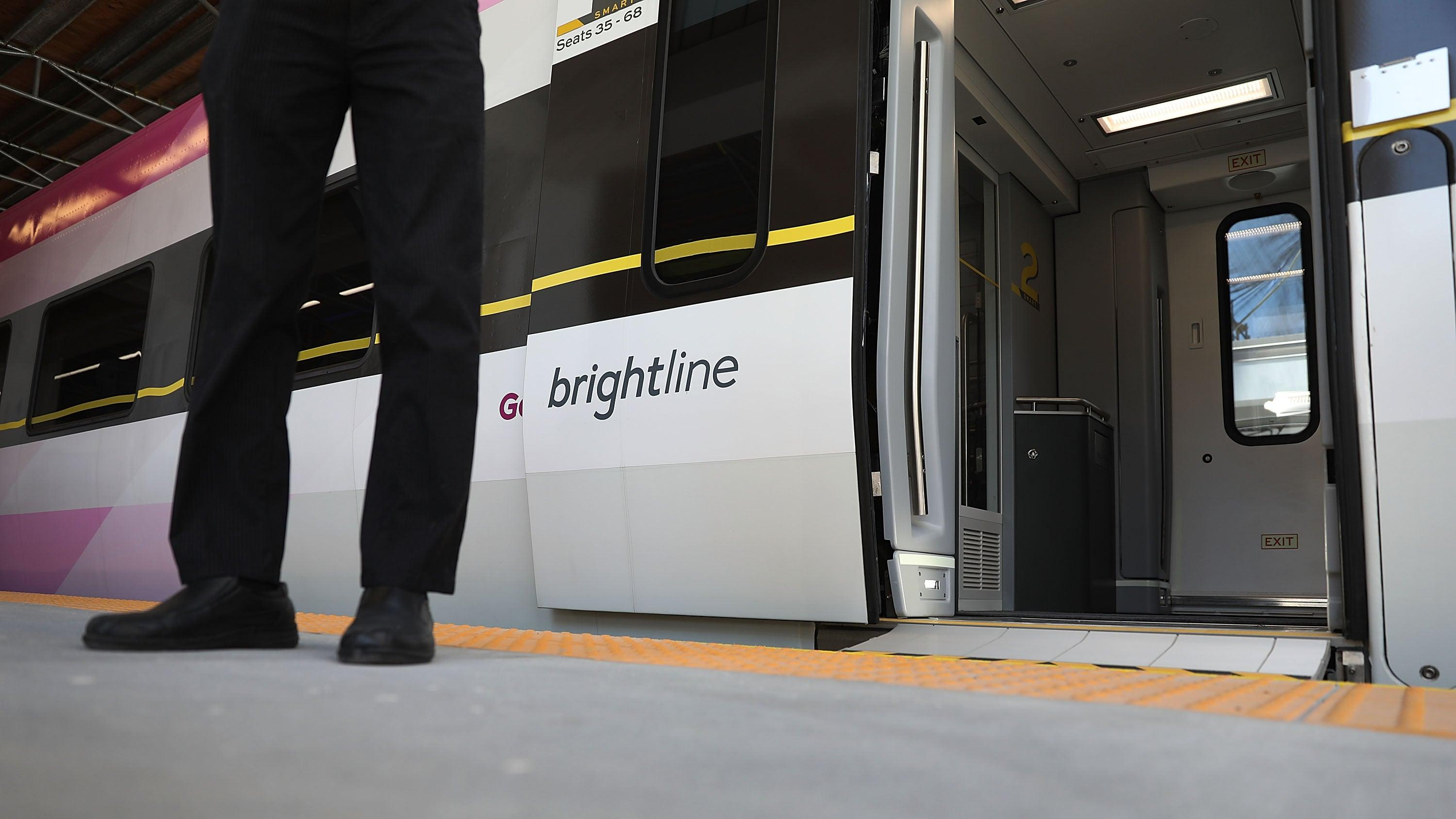Brightline Train Strikes SUV, Killing 2 Days Before 110 MPH Testing To Begin
The deadliest train line in America has killed 88 people in just 6 years.
Two people died in Florida this week after a southbound privately owned higher-speed passenger train struck an SUV stopped for a northbound train.
A southbound Brightline passenger train struck an SUV in Delray Beach Wednesday night moments after a northbound freight train had just passed through the same intersection. These latest fatalities drew the attention of the the National Transportation Safety Board, which is opening its own investigation into the crash.
The two deaths come just a few days before Brightline is set to begin testing 110 mile-per-hour speed runs through West Palm Beach and parts of Palm Beach County, according to the The Palm Beach Post:
It was not immediately clear how fast the train was traveling at the time of the wreck or why the SUV was in the crossing, just north of the Boca Raton city limit. White said the SUV's two occupants were both adults, but he did not release any other identifying information. The investigation into the crash remains active, he said.
It was not immediately clear how fast the train was traveling at the time of the wreck or why the SUV was in the crossing, just north of the Boca Raton city limit. White said the SUV's two occupants were both adults, but he did not release any other identifying information. The investigation into the crash remains active, he said.
The FEC Railway tracks, which Brightline shares with the freight line, have few barriers blocking pedestrians from walking on them. Brightline officials have been quick to note that the fatalities have involved pedestrians walking on the tracks or motorists who try to beat trains. None have been the fault of their engineers, they said.
Way to miss the point, Brightline. I don't think anyone is blaming your engineers. Anyone with a grasp of physics knows big heavy trains, sometimes traveling at 79 miles per hour, aren't able to stop in time when something suddenly crosses their paths. The question is, should these trains be traveling at above-freeway speeds through neighborhoods across 178 street-crossings with almost no protection or surveillance around these intersections.
It's a question that multiple private and federal studies answered with a fairly firm "no" well before the whole project got underway. In 2014, a federal report called trespassing on the tracks "epidemic." South Florida is a uniquely terrible place to build high-speed rail due to the number of unprotected grade crossings.
While the company would like you to think the mass majority of these deaths are suicides the numbers don't lie: Brightline is the deadliest train operator in America, and has killed 88 people since it opened service to Florida's Gold Coast in June of 2017. That's a death for every 32,000 miles traveled, ABC reports. The next deadliest trainline, CalTrain in San Francisco, experiences one death for every 105,000 miles. This is clearly not suicides or recklessness when your private infrastructure reaches that kind of body count; it's bad, lazy and, most importantly, profit-friendly design with a complete disregard for surrounding communities.
